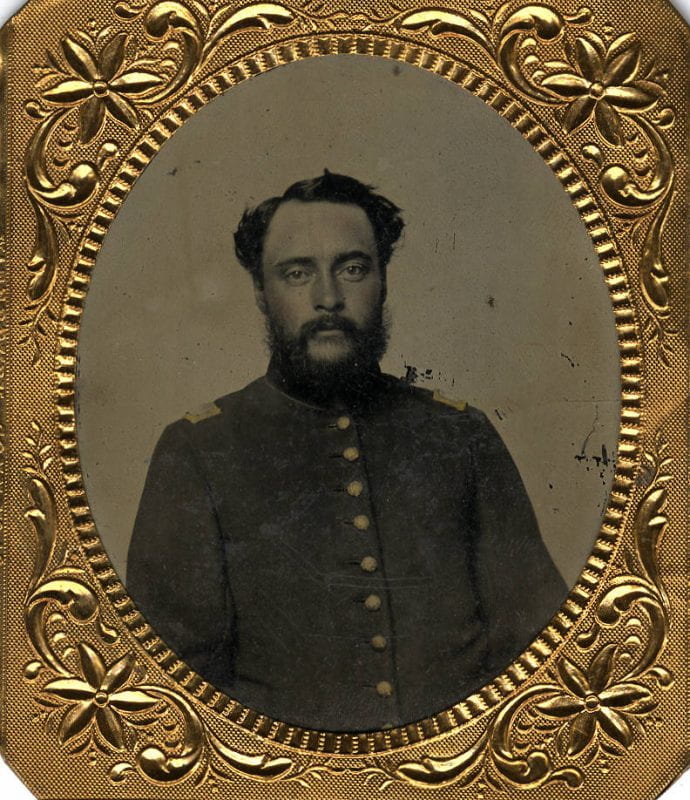Author: Kayla Allen, Archives Assistant and graduate student in the History MA Program at UMass Boston
If you want to learn more about the Civil War or see some handwritten sheet music from the 1800s, you need look no further than our William A. Cowles papers, 1834-1905. William Cowles was a young man during the Civil War and he served in the Union Army twice with the 42nd Regiment, Massachusetts Volunteers. On his first tour, Private Cowles played the French horn in the band of the 42nd Regiment while they were stationed in New Orleans. Later, Cowles served as a corporal in the same regiment. During both of his tours, Cowles had to leave behind his young wife, Josephine Lewis. Luckily, Cowles survived the war and was able to return home to Josephine and father two children.
After Cowles’s and Josephine’s deaths, his papers made their way into the possession of author and historian Anthony Mitchell Sammarco, who donated them to the Healey Library’s University Archives and Special Collections. The digitized part of this collection includes images (such as daguerreotypes and tintypes) of Cowles, Josephine, and at least one of their two daughters. It also consists of war-time documentation like Cowles’s furlough card, discharge papers, and a muster call. In addition, there are obituaries and funeral information for both Cowles and Josephine, Cowles’s medals and ribbons, and his tuning fork. Some of the larger objects in the collection are Cowles’s sewing kit and portable writing desk (which he would have had with him on his tours), his journals documenting his experiences during the war, and his small book of music containing all of the pieces he played while on active duty.
Please feel free to take a moment and “thumb” through the pages of Cowles’s journals and music book. We also have a typed transcript of some of his writing that might be helpful. When you’re ready, you can check out the digital collection and the physical collection’s finding aid.




